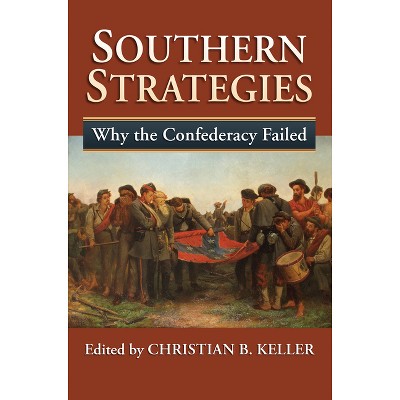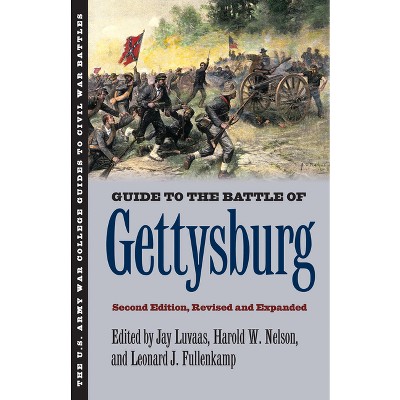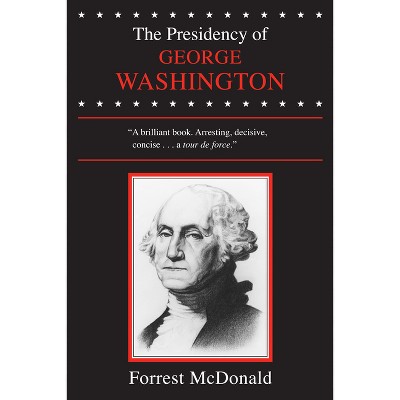Sponsored

Southern Enclosure - by John H Cable (Hardcover)
In Stock
Sponsored
About this item
Highlights
- Historians of the American South have come to consider the mechanization and consolidation of cotton farming--the "Southern enclosure movement"--to be a watershed event in the region's history.
- Author(s): John H Cable
- 216 Pages
- History, United States
Description
About the Book
"Southern Enclosure is among the first studies to explore that process through the interpretive lens of settler colonialism. Focusing on east central Mississippi, home of the Mississippi Band of Choctaw Indians, it situates enclosure in the long history of dispossession that began with Indian Removal. The project follows elite white landowners and Black and Choctaw farmers from World War II to 1960-the period when the old, labor-intensive farm structure collapsed. To acknowledge that this process occurred on taken land is to view the records of agricultural agents, segregationist politicians, and the Bureau of Indian Affairs (BIA) as traces of ongoing colonization"--Book Synopsis
Historians of the American South have come to consider the mechanization and consolidation of cotton farming--the "Southern enclosure movement"--to be a watershed event in the region's history. In the decades after World War II, this transition pushed innumerable sharecroppers, tenant farmers, and smallholders off the land, redistributing territory and resources upward to a handful of large, mainly white operators. By disproportionately displacing Black farmers, enclosure also slowed the progress of the civil rights movement and limited its impact.
John H. Cable's Southern Enclosure is among the first studies to explore that process through the interpretive lens of settler colonialism. Focusing on east-central Mississippi, home of the Mississippi Band of Choctaw Indians, Cable situates enclosure in the long history of dispossession that began with Indian Removal. The book follows elite white landowners and Black and Choctaw farmers from World War II to 1960--the period when the old, labor-intensive farm structure collapsed. By acknowledging that this process occurred on taken land, Cable demonstrates that the records of agricultural agents, segregationist politicians, and the Bureau of Indian Affairs (BIA) are traces of ongoing colonization.
The settler colonial framework, rarely associated with the postwar South, sheds important light on the shifting categories of race and class. It also prompts comparisons with other settler societies (states in southern and eastern Africa, for instance) whose timelines, racial regimes, and agrarian transitions were similar to those of the South. This postwar history of the South suggests ways in which the BIA's termination policy dovetailed with Southern segregationism and, at the same time, points to some of the shortcomings of the burgeoning field of settler colonial studies.
Review Quotes
"Cable broadens the historiographical scope of enclosure by challenging the traditional Black-white binary approach. In the groundbreaking work, Cable argues that incorporating Native Americans, specifically Choctaws, not only strengthens our understanding of racial injustice, but views the South through the transnational lens of settler colonialism. . . . Overall, anyone interested in agriculture, labor, and race in settler societies will appreciate this book."--American Historical Review
"John Cable's framework centering the political economy of race as part of a larger movement of global decolonization puts Southern labor history in conversation with the literatures of political struggles for dignity and autonomy across a range of times and places. Challenging the biracial model of Southern history by applying a settler colonial model effectively connects the Southern struggle for civil rights with global decolonization in a new way, and Cable is the first to view this struggle through the lens of settler colonialism."--Katherine Osburn, associate professor emeritus of history at Arizona State University, and author of Choctaw Resurgence in Mississippi: Race, Class, and Nation Building in the Jim Crow South, 1830-1977
"In superb and often arresting detail, John Cable recasts the post-World War II dispossession and displacement of Choctaw, African American, and poor white people in Mississippi as an instance of settler colonialism. By making substantive and expansive comparisons with white settlers in southern and eastern Africa, he convincingly connects the exploitative and extractive impulse of the white landowning elite in east central Mississippi with settlers throughout the colonial world. He pays equal attention to the powerful resistance of Choctaw and Black people that paralleled and sometimes drew inspiration from African decolonization movements."--Adrienne Petty, associate professor of history, College of William and Mary, and author of Standing Their Ground: Small Farmers in North Carolina since the Civil War
Shipping details
Return details
Trending Non-Fiction

















